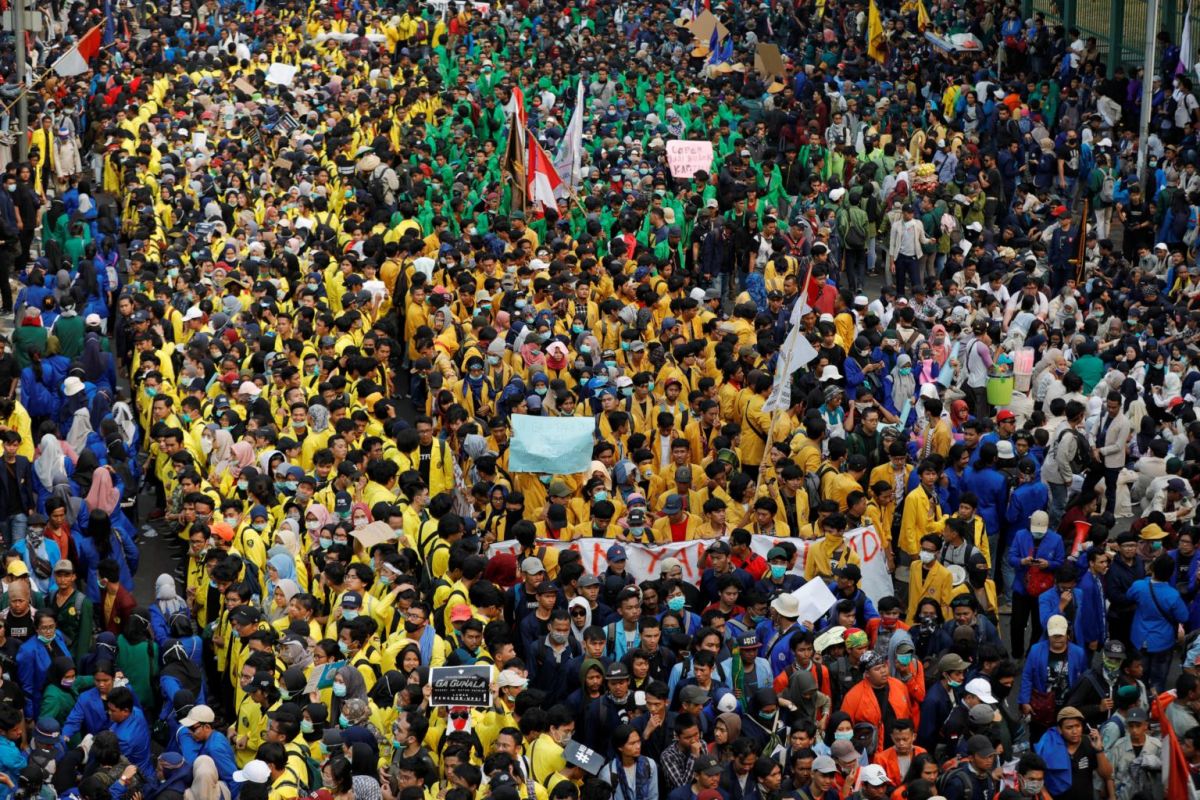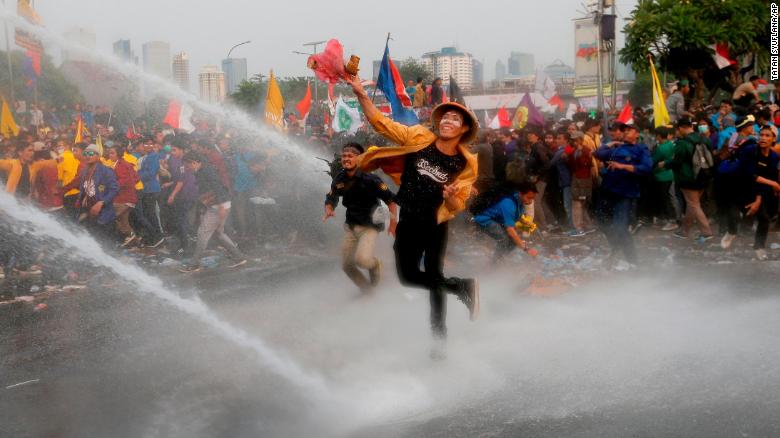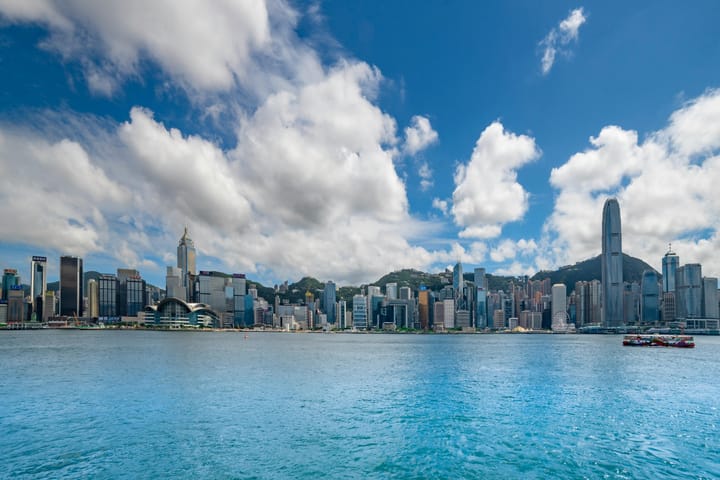Indonesia halts controversial penal code revision amid nationwide protests

A few minutes every morning is all you need.
Stay up to date on the world's Headlines and Human Stories. It's fun, it's factual, it's fluff-free.
On September 20, 2019, President Joko Widodo abruptly delayed the passage of Indonesia’s Draft Penal Code, a controversial 628-article bill that would overhaul the nation’s criminal laws. The revised code would further restrict freedom of speech in a country where it is already limited, and also ban sex outside of marriage.
The bill had been expected to win the approval of the Indonesian Parliament in a vote scheduled for September 25. However, after overwhelming opposition from activists, legal experts, and the Indonesian general public, Widodo announced that he has delayed the vote. The matter is now slated for consideration by the incoming Parliament, which will be seated this month.
Protesters have decried not only the Draft Penal Code, but also another controversial piece of legislation passed in early September. The new law aims to strip the Corruption Eradication Commission (the KPK) of key powers, allowing lawmakers and national leaders to kill off corruption inquiries before they begin.
Because Indonesian politicians are often the targets of KPK investigations, the law sparked concern among activists, students and others, who fear that it will allow leaders to shield themselves from oversight. The international community widely viewed the law as a substantial setback to Indonesia’s anti-corruption campaign.

Protests against the new laws continue across Indonesia
Delaying the vote on the Draft Penal Code did not appease protesters, many of whom remain highly suspicious of their government because of the anti-KPK law. On September 23, two days before the originally planned ratification date for the updated code, an estimated 10,000 people took to the streets, igniting other protests nationwide.
According to some reports, the demonstrations grew to become the largest in Indonesia since 1998. Protesters called for Widodo to not only scrap the new penal code, but also repeal the September corruption law and end the burning of the country’s rainforests.
In Jakarta, demonstrators blocked the toll road outside the DPR/MPR Building (the seat of the national parliament). Some threw rocks and even attempted to break into the building. Police responded by firing tear gas and water cannons into the crowds.
According to Metro Jaya Regional Police Chief Gatot Eddy Pramono, 265 students and 39 police officers were injured in the demonstrations, and 94 people were arrested. In Papua, the country’s easternmost province, at least 24 deaths were reported after a violent clash between protesters and police occurred on Friday, September 27.
[article_ad]
Effects of the September law restricting KPK actions
The KPK was first established in 2002 to facilitate clean governance in Indonesia. With a 100% conviction rate since then, the organization has garnered widespread praise from the Indonesian public and the international community. Largely due to the KPK’s efforts, Indonesia has risen 33 places on Transparency International’s Corruption Perception Index, from 122nd in 2003 to 89th in 2018.
However, the new law ends the KPK’s status as an independent body by establishing a government oversight committee. The existence of this committee could allow powerful figures who are the subjects of KPK investigations to interfere with the inquiries. The committee also has the power to restrict KPK operations, for example by denying authorization to use wiretaps to gather information.
Now that it has become an arm of the government, the KPK will also be expected to collaborate with the police and other civil agencies. This change could create conflicts of interest that prevent the KPK from properly investigating civil servants like police officials.
In addition, the new law requires the KPK to suspend investigations and prosecutions that span longer than two years. Critics of the law believe that this requirement will hinder the organization’s ability to prosecute incidents of serious corruption, which often take years to uncover.
What the Draft Penal Code would mean for Indonesians
Developed in 1946, Indonesia’s Criminal Code was originally based on Dutch colonial laws. The Indonesian Parliament has spent nearly two decades revising the code. The new 628-article bill would add a number of controversial provisions to the code, including:
Punishment of extramarital sex
Article 417 criminalizes extramarital sex, with a prescribed punishment of up to one year in prison. Article 419 specifies that unmarried couples living together can face up to six months in prison.
The penal code does not explicitly mention LGBTQ+ issues. However, since Indonesia does not legally recognize same-sex marriage, these articles effectively criminalize same-sex partnerships in the country.
The provisions may also disproportionately affect low-income households. People with limited means in Indonesia often cannot obtain legal documents validating their marriages. A 2014 study showed that in 55% of the lowest-income households in Indonesia, couples did not have marriage certificates.
[article_ad]
Restricting access to contraception
Article 414 of the revised code imposes a fine or prison term upon anyone who endeavors “to show, to offer, to broadcast, to write or to promote a contraception to a minor.” However, Article 416 specifies exceptions for health professionals and “competent volunteers”, who would be allowed to discuss contraception for the purpose of family planning or reproductive health education.
If enacted, Article 414 will severely limit Indonesian minors’ access to reproductive health education, including methods of family planning and preventing sexually transmitted diseases (STDs). According to Human Rights Watch, restricting access to condoms also disproportionately impacts marginalized groups such as the LGBTQ+ community and sex workers, who are already at higher risk for STDs, including HIV/AIDS.
Restricting access to abortion
Articles 415, 470, and 471 grant doctors the right to perform or refuse an abortion at their discretion. However, these same articles specify a punishment of up to four years in prison for a woman who aborts a pregnancy. People who help a pregnant woman to get an abortion can get up to five years in prison. These articles may also restrict the sale and use of Plan B pills, with a proposed punishment of up to six months in prison.
Expansion of the current Blasphemy Law
Articles 304 through 309 expand on the country’s current Blasphemy Law, which punishes deviations from Indonesia’s six recognized religions: Islam, Protestantism, Catholicism, Hinduism, Buddhism, and Confucianism. Since it was passed in 1965, the Blasphemy Law has been used to convict more than 150 individuals for acts as small as writing the words “Allah” and “Mohammad” on a pair of sandals.
Restricting freedom of speech
Article 219 criminalizes “insults” to the president or vice president, effectively exempting these leaders from public criticism.
Article 118 bans Marxist-Leninist teaching, prescribing up to four years in prison for those who spread communist ideology, and up to 10 years for associating with organizations that follow such an ideology.
Suppression of communism in Indonesia has a long and bloody history. In 1965-1966, the Indonesian Army slaughtered nearly half a million people affiliated with the country’s Communist Party.
What happens now that the Draft Penal Code is delayed?
While the delayed vote on the code has granted Indonesians a reprieve, protesters and activists are seeking a more definitive response from the president. Widodo was elected for a second term earlier in 2019, and will be sworn in officially on October 20.
Amid the ongoing protests, Widodo said in a televised address on September 26 that he is considering revoking the KPK law. He also said he would consider feedback on the draft criminal code regarding whether it would intrude too far into citizens’ private lives.
[article_ad]




Comments ()